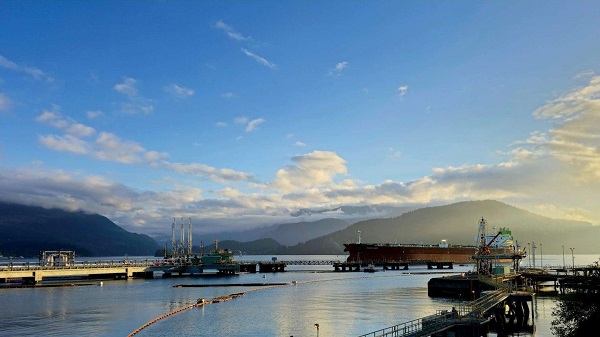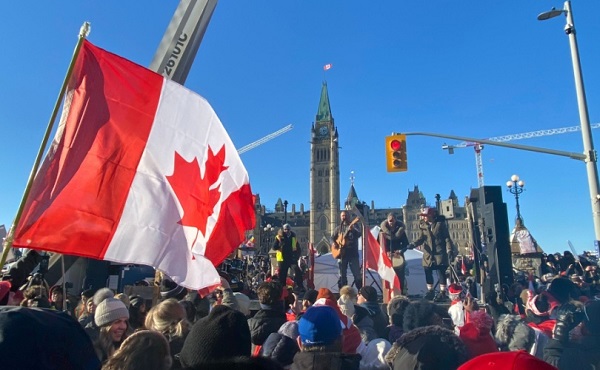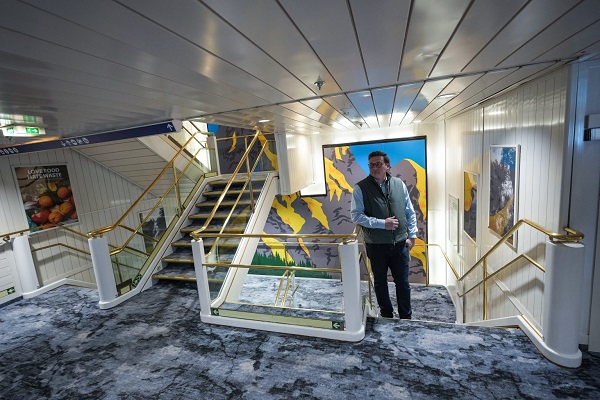Business
Hurricane Donald, Or Not, Canada Should Have Fixed These Problems Long Ago

By Jeremy Nuttall
Jeremy Nuttall, former Toronto Star investigative reporter, argues “In recent years the U.S. has been solving problems the Canadian government wasn’t interested in.”
The nerves have been frazzled north of the border here in typical Canadian style, in the wake of the election of Donald Trump as president of ‘those’ United States. As Robin Williams famously said, Canada is like a really nice apartment over a meth lab.
And now, a significant swath of Canadians are reeling from the election of a man who has so many failings, both with his character and ethics, running the most powerful nation on Earth, with whom we share a border. It has understandably sparked a doomsday scenario in the minds of many Canadians.
But if you’re looking for a way to work out this nervous energy, here’s an idea: help put Canada’s house in order. This apartment isn’t as nice as the late Mr. Williams would have us believe.
Trump’s first term as a U.S. president saw many guardrails and civil servants prevent him from enacting his full agenda. The U.S. institutions did a decent job of mitigating damage. Oh, how nice it would be to see such gumption in the halls of power in Canada. But we don’t, and that makes this country even more susceptible than the Americans are to the whims of any nefarious would-be ruler.
In recent years, the U.S. has been solving problems the Canadian government either wasn’t interested in, didn’t know about, or, most likely, didn’t care about.
The money laundering charges against TD, taking a stand on issues related to Beijing, including foreign interference, and acting to stop slave-labor-made goods from entering the country while Ottawa did nothing are just a few examples. Say what you want about the U.S.; they forced Canada’s hand on these issues or drew attention to our country’s inaction.
But that’s likely over for now, and if you’re really worried about the perils of a Trump-style candidate ever coming to Canada, you should be aware this country has already had the kind of scandals Trump’s next presidency is predicted to bring.
What do I mean?
Foreign interference, money laundering, cronyism, and the breaking of our transparency laws are commonplace. We have an opacity problem combined with institutions less resistant to scumbaggery, and anyone with enough power and little conscience could really manipulate them if they so wished.
Examples? Sure. We can start with the government refusing to hand over all the documents as ordered by Parliament related to Sustainable Development Technology Canada. The Liberals’ refusal to give up such documents has had Ottawa in gridlock for months. Doesn’t that sound like something a Trump-style candidate would do?
We found out last month that, after Liberal Party supporters chastised “illegal CSIS leakers” for giving evidence the PMO chose to ignore to the media, Trudeau’s national security adviser and deputy minister of foreign affairs leaked information about India’s potential involvement in the assassination of a Sikh leader to one of the biggest U.S. media outlets going, The Washington Post. I haven’t seen any demands for an investigation into that.
We’ve also recently had the Greenbelt scandal in Ontario, the ArriveCAN scandal, and B.C.’s money laundering inquiry revealing how white this country can make your green. The RCMP, meanwhile, more frequently doesn’t release basic information about crimes, including the names of homicide victims (an important, though somber, matter of public record).
Then there’s the increasing liberties being taken with our systems of government by those in charge of it. Wab Kinew’s Manitoba NDP booted a lawyer out of caucus because someone in his firm—not even him—is defending Peter Nygard in his sexual assault trial. Kinew apologized after uproar from legal groups, but the move draws into question how important the right to a defense and its importance to the justice system is for that government.
Over in Alberta, Danielle Smith is making anti-vaxxers feel special by crafting legislation specifically protecting them from workplace vaccination mandates, in what is obviously a politically driven waste of public resources.
Last week, we learned the CRA apparently orchestrated a “witch hunt” to find out who dropped the dime on their false reimbursement scandal. And while we’re on the CRA, you may recall more than 230 CRA civil servants were fired earlier this year for falsely claiming CERB.
It goes on, and, as bad as all that is, what’s worse is how our political parties have, without any real opposition, politicized our civil service.
ATIPs and FOIs aren’t returned within legislated timelines as staffers thumb their noses at the media and public. There’s a sense of entitlement to use public funds and information for political advantage, and it’s just ignored by the public. Our government ministerial positions are more frequently filled with career ladder-climbers rather than seasoned professionals with a proven track record before entering politics.
Going back further, Jody Wilson-Raybould was tarnished for not toeing the line in the SNC Lavalin Scandal. Our former ambassador to China effectively took China’s side in the Meng Wanzhou detention over our biggest ally, saying it’d be “great for Canada” if the U.S. dropped its extradition case against her.
The same man, John McCallum, would later tell Chinese officials that their continued targeting of Canadian trade could lead to a Conservative government. Sure, it raised eyebrows, but nothing came of it.
This is your country, Canadians, and it’s open season. It doesn’t matter what party is in charge; these issues of accountability and politicization exist in all of them.
Don’t look for the media to save us. Many editors don’t see what the big deal is with all this. “It’s always been like this” is something I’ve heard way more times than I’d care to list from journalists in recent years.
Aside from a few bright lights or publications, Canadian media is either unwilling or incapable of really digging into some of the more serious issues like foreign interference, government corruption, and the lack of transparency.
The goodwill of the Canadian public and warm fuzzy feelings about this country help keep the status quo. If we ever have a serious threat from a Trump-like politician, this place is easy pickings.
We’d be wise to, instead of collectively shaking our heads and ranting about the decision made by the U.S. public, start making sure it can’t happen up here and make the current threats to our democracy your issues.
The Bureau is a reader-supported publication. To receive new posts and support my work, consider becoming a free or paid subscriber. We break international stories and this requires elite expertise, time and legal costs.
Business
US Energy Secretary says price of energy determined by politicians and policies


From the Daily Caller News Foundation
During the latest marathon cabinet meeting on Dec. 2, Energy Secretary Chris Wright made news when he told President Donald Trump that “The biggest determinant of the price of energy is politicians, political leaders, and polices — that’s what drives energy prices.”
He’s right about that, and it is why the back-and-forth struggle over federal energy and climate policy plays such a key role in America’s economy and society. Just 10 months into this second Trump presidency, the administration’s policies are already having a profound impact, both at home and abroad.
While the rapid expansion of AI datacenters over the past year is currently being blamed by many for driving up electric costs, power bills were skyrocketing long before that big tech boom began, driven in large part by the policies of the Obama and Biden administration designed to regulate and subsidize an energy transition into reality. As I’ve pointed out here in the past, driving up the costs of all forms of energy to encourage conservation is a central objective of the climate alarm-driven transition, and that part of the green agenda has been highly effective.
Dear Readers:
As a nonprofit, we are dependent on the generosity of our readers.
Please consider making a small donation of any amount here.
Thank you!
President Trump, Wright, and other key appointees like Interior Secretary Doug Burgum and EPA Administrator Lee Zeldin have moved aggressively throughout 2025 to repeal much of that onerous regulatory agenda. The GOP congressional majorities succeeded in phasing out Biden’s costly green energy subsidies as part of the One Big Beautiful Bill Act, which Trump signed into law on July 4. As the federal regulatory structure eases and subsidy costs diminish, it is reasonable to expect a gradual easing of electricity and other energy prices.
This year’s fading out of public fear over climate change and its attendant fright narrative spells bad news for the climate alarm movement. The resulting cracks in the green facade have manifested rapidly in recent weeks.
Climate-focused conflict groups that rely on public fears to drive donations have fallen on hard times. According to a report in the New York Times, the Sierra Club has lost 60 percent of the membership it reported in 2019 and the group’s management team has fallen into infighting over elements of the group’s agenda. Greenpeace is struggling just to stay afloat after losing a huge court judgment for defaming pipeline company Energy Transfer during its efforts to stop the building of the Dakota Access Pipeline.
350.org, an advocacy group founded by Bill McKibben, shut down its U.S. operations in November amid funding woes that had forced planned 25 percent budget cuts for 2025 and 2026. Employees at EDF voted to form their own union after the group went through several rounds of budget cuts and layoffs in recent months.
The fading of climate fears in turn caused the ESG management and investing fad to also fall out of favor, leading to a flood of companies backtracking on green investments and climate commitments. The Net Zero Banking Alliance disbanded after most of America’s big banks – Goldman Sachs, J.P. Morgan Chase, Citigroup, Wells Fargo and others – chose to drop out of its membership.
The EV industry is also struggling. As the Trump White House moves to repeal Biden-era auto mileage requirements, Ford Motor Company is preparing to shut down production of its vaunted F-150 Lightning electric pickup, and Stellantis cancelled plans to roll out a full-size EV truck of its own. Overall EV sales in the U.S. collapsed in October and November following the repeal of the $7,500 per car IRA subsidy effective Sept 30.
The administration’s policy actions have already ended any new leasing for costly and unneeded offshore wind projects in federal waters and have forced the suspension or abandonment of several projects that were already moving ahead. Capital has continued to flow into the solar industry, but even that industry’s ability to expand seems likely to fade once the federal subsidies are fully repealed at the end of 2027.
Truly, public policy matters where energy is concerned. It drives corporate strategies, capital investments, resource development and movement, and ultimately influences the cost of energy in all its forms and products. The speed at which Trump and his key appointees have driven this principle home since Jan. 20 has been truly stunning.
David Blackmon is an energy writer and consultant based in Texas. He spent 40 years in the oil and gas business, where he specialized in public policy and communications.
Business
Oil tanker traffic surges but spills stay at zero after Trans Mountain Expansion

From the Canadian Energy Centre
Bigger project maintains decades-long marine safety record
The Trans Mountain system continues its decades-long record of zero marine spills, even as oil tanker traffic has surged more than 800 per cent since the pipeline’s expansion in May 2024.
The number of tankers calling at Trans Mountain’s Westridge Marine Terminal in the Port of Vancouver in one month now rivals the number that used to go through in one year.
A global trend toward safer tanker operations
Trans Mountain’s safe operations are part of a worldwide trend. Global oil tanker traffic is up, yet spills are down, according to the International Tanker Owners Pollution Federation, a London, UK-based nonprofit that provides data and response support.
Transport Canada reports a 95 per cent drop in ship-source oil spills and spill volumes since the 1970s, driven by stronger ship design, improved response and better regulations.
“Tankers are now designed much more safely. They are double-hulled and compartmentalized to mitigate spills,” said Mike Lowry, spokesperson for the Western Canada Marine Response Corporation (WCMRC).
WCMRC: Ready to protect the West Coast

One of WCMRC’s new response vessels arrives in Barkley Sound. Photo courtesy Western Canada Marine Response Corporation
From eight marine bases including Vancouver and Prince Rupert, WCMRC stands at the ready to protect all 27,000 kilometres of Canada’s western coastline.
Lowry sees the corporation as similar to firefighters — training to respond to an event they hope they never have to see.
In September, it conducted a large-scale training exercise for a worst-case spill scenario. This included the KJ Gardner — Canada’s largest spill response vessel and a part of WCMRC’s fleet since 2024.
“It’s part of the work we do to make sure everybody is trained and prepared to use our assets just in case,” Lowry said.
Expanding capacity for Trans Mountain

The K.J. Gardner is the largest-ever spill response vessel in Canada. Photo courtesy Western Canada Marine Response Corporation
WCMRC’s fleet and capabilities were doubled with a $170-million expansion to support the Trans Mountain project.
Between 2012 and 2024, the company grew from 13 people and $12 million in assets to more than 200 people and $213 million in assets.
“About 80 per cent of our employees are mariners who work as deckhands, captains and marine engineers on our vessels,” Lowry said.
“Most of the incidents we respond to are small marine diesel spills — the last one was a fuel leak from a forest logging vessel near Nanaimo — so we have deployed our fleet in other ways.”
Tanker safety starts with strong rules and local expertise

Tanker loading at the Westridge Marine Terminal in the Port of Vancouver. Photo courtesy Trans Mountain Corporation
Speaking on the ARC Energy Ideas podcast, Trans Mountain CEO Mark Maki said tanker safety starts with strong regulations, including the use of local pilots to guide vessels into the harbour.
“On the Mississippi River, you have Mississippi River pilots because they know how the river behaves. Same thing would apply here in Vancouver Harbour. Tides are strong, so people who are familiar with the harbor and have years and decades of experience are making sure the ships go in and out safely,” Maki said.
“A high standard is applied to any ship that calls, and our facility has to meet very strict requirements. And we have rejected ships, just said, ‘Nope, that one doesn’t fit the bill.’ A ship calling on our facilities is very, very carefully looked at.”
Working with communities to protect sensitive areas
Beyond escorting ships and preparing for spills, WCMRC partners with coastal communities to map sensitive areas that need rapid protection including salmon streams, clam beds and culturally important sites like burial grounds.
“We want to empower communities and nations to be more prepared and involved,” Lowry said.
“They can help us identify and protect the areas that they value or view as sensitive by working with our mapping people to identify those areas in advance. If we know where those are ahead of time, we can develop a protection strategy for them.”
-

 Business2 days ago
Business2 days agoCarney’s Toronto cabinet meetings cost $530,000
-

 Bruce Dowbiggin2 days ago
Bruce Dowbiggin2 days agoIntegration Or Indignation: Whose Strategy Worked Best Against Trump?
-

 MAiD2 days ago
MAiD2 days ago101-year-old woman chooses assisted suicide — press treats her death as a social good
-

 COVID-191 day ago
COVID-191 day agoCanadian legislator introduces bill to establish ‘Freedom Convoy Recognition Day’ as a holiday
-

 espionage2 days ago
espionage2 days agoDigital messages reportedly allege Chinese police targeted dissident who died suspiciously near Vancouver
-

 International2 days ago
International2 days agoFBI may have finally nabbed the Jan. 6 pipe bomber
-

 Energy1 day ago
Energy1 day agoA look inside the ‘floatel’ housing B.C.’s LNG workforce
-

 Business1 day ago
Business1 day agoUS Energy Secretary says price of energy determined by politicians and policies












